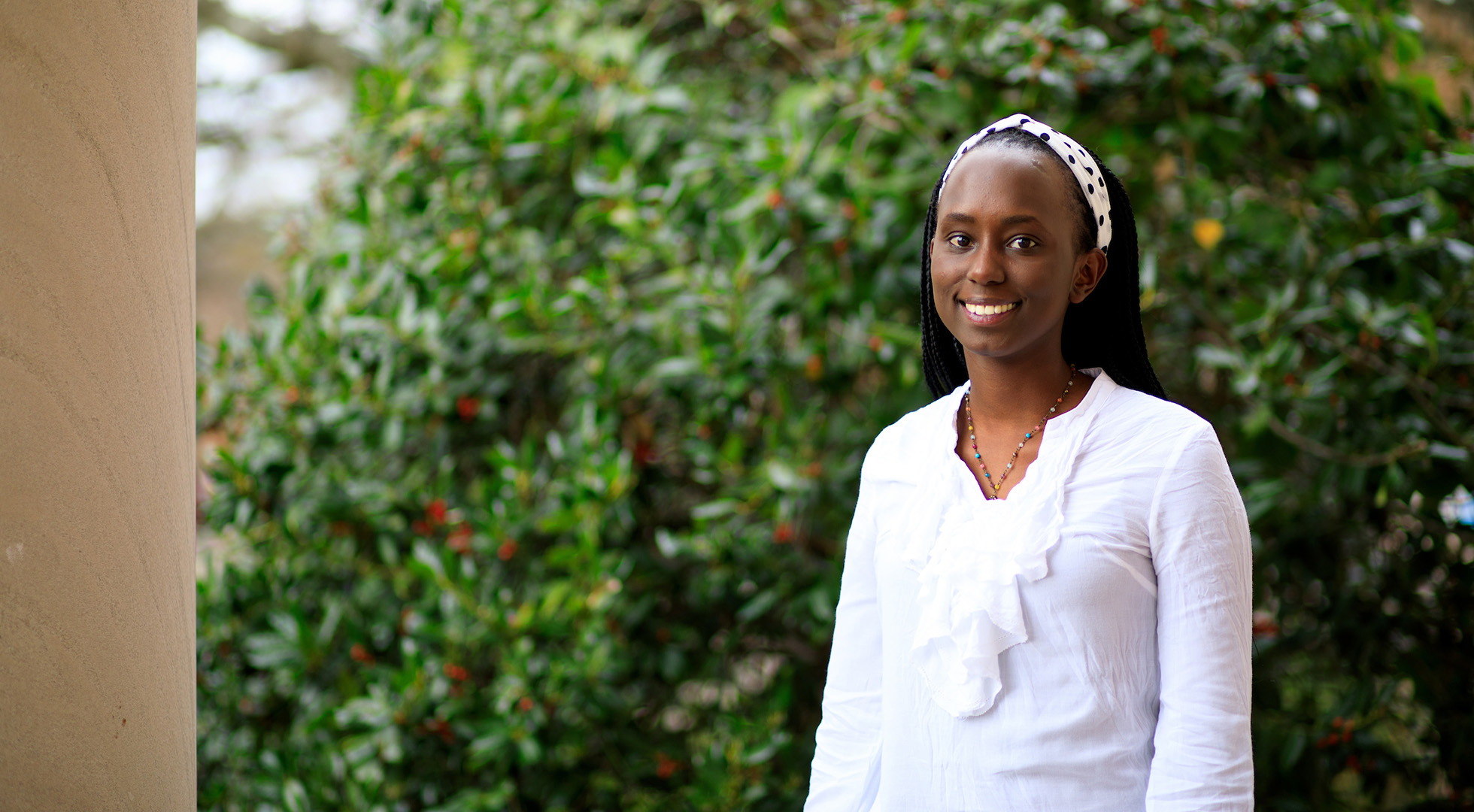Christa Bella Bizimana’s natural curiosity for how food impacts health led her to Samford University’s School of Public Health, declaring nutrition and dietetics as her major. “I was fascinated by the science behind why some food may be better for us than others,” she said. “For instance, I cared to know how broccoli helps boost our immune system or how to manage the amount or type of protein for people with kidney disease.”
This curiosity quickly developed into a passion. Yet an internship experience over the summer would set her on a new path, defining the calling she has to care for others.
Bizimana was born and raised in Burundi, a small country in the heart of Africa. She was selected to be a part of a program called Bridge2Rwanda, which helped her earn a full scholarship to Samford University. Last summer, she returned to Africa for an opportunity to shadow nutritionists at a hospital in Rwanda.
“I had the opportunity to round in internal medicine where many patients needed a specific diet for better management of their diseases. However, the dietitian would provide his services only to those whose insurance would cover it. Thus, some patients would result in asking diet advice to the resident doctor because they assumed that he would be knowledgeable enough about nutrition,” she said.
“This exposure made me think about how a doctor with substantial knowledge about nutrition could improve the quality of health care for such patients.”
Being in the internal medicine department, Bizimana worked hand-in-hand with a team of health care providers, including doctors, medical students, nurses, pharmacists, nutritionists and more.
“It was so exciting,” she said. “I loved listening to residents presenting patients’ cases and attendings explaining the patients’ conditions in their medical jargon. I felt like I wanted to know what they knew and do what they were doing. No matter how hard it would be to become a medical doctor, at that moment, I felt it would be worth it.”
She returned to Samford in the fall with new intentions to pursue medical school after earning her bachelor’s degree. “People advised me to switch my major, but I didn’t want to. In that hospital, I realized that a B.S in Nutrition and Dietetics would make me a better doctor for my patients,” Bizimana said.
Indeed, given the fact that more and more people suffer from issues directly related to diet, Bizimana has seen how performing a nutrition assessment can increase their quality of care—as well as understanding counseling concepts, such as stages of change, can help doctors better understand their patients.
After working with her academic advisor, Bizimana connected with Suresh Mathews, professor and chair of the school’s Department of Nutrition and Dietetics. “He told me all that I needed to do to be eligible for medical school—like grades, MCAT scores, extracurricular activities, volunteering hours and research experience,” Bizimana said. “After that, looking at my scared face, he asked me whether I knew Jeremiah 29:11 by heart.”
For I know the plans I have for you, declares the Lord, plans for welfare and not for evil, to give you a future and a hope.
“Since then, I have been sending him an updated version of my resume each semester, and he follows up with my course work schedule to ensure I am doing what I need to do to stay on track,” Bizimana said. “I am glad I have stayed in the Department of Nutrition and Dietetics. I feel supported and blessed to be in a place where I know that people care.”

